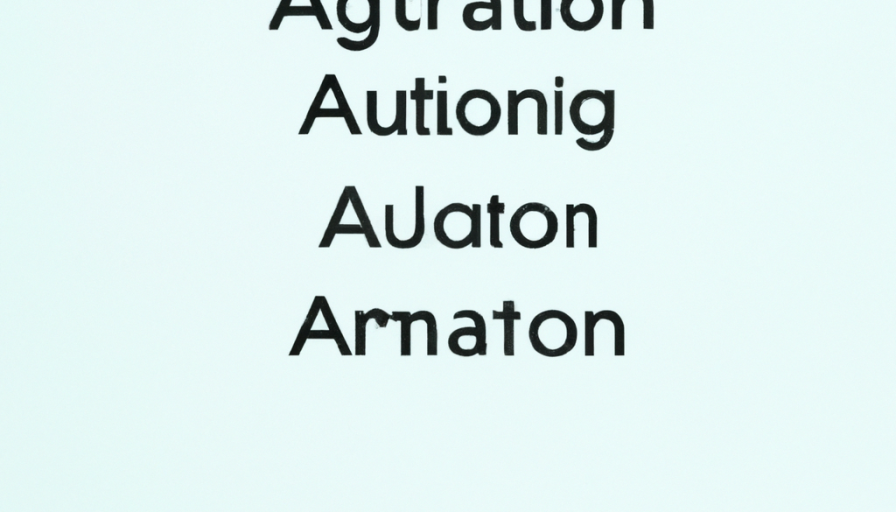AI Marketing Automation for Customer Engagement
Artificial Intelligence (AI) is revolutionizing the way businesses interact with their customers. With the advancement of technology, AI-powered marketing automation tools have emerged as a game-changer in the world of customer engagement. In this article, we will explore the benefits and functionalities of AI marketing automation, and how it can help businesses streamline their marketing efforts to enhance customer engagement.
What is AI Marketing Automation?
AI marketing automation refers to the use of artificial intelligence technologies to automate and optimize marketing tasks and workflows. By leveraging machine learning algorithms and data analytics, AI marketing automation tools can collect and analyze vast amounts of customer data, and use it to deliver personalized, targeted marketing campaigns. Unlike traditional marketing automation, AI marketing automation goes beyond predefined rules and offers intelligent insights and recommendations based on real-time customer behavior and preferences.
Benefits of AI Marketing Automation for Customer Engagement
1. Personalization at Scale
One of the key benefits of AI marketing automation is its ability to deliver personalized experiences at scale. AI algorithms can analyze customer data, such as browsing history, purchase behavior, and demographic information, to create highly personalized marketing messages and recommendations. By delivering relevant content to individual customers, businesses can enhance customer satisfaction and drive higher engagement rates.
2. Real-time Customer Insights
AI marketing automation tools can collect and process customer data in real-time, providing businesses with valuable insights into customer behavior and preferences. This helps businesses understand their customers better and enables them to tailor their marketing efforts accordingly. By knowing what resonates with their audience, businesses can create more effective marketing campaigns and boost customer engagement.
3. Predictive Analytics
AI marketing automation leverages predictive analytics to forecast customer behavior and identify potential opportunities for engagement. By analyzing historical data and patterns, AI algorithms can predict future customer actions, such as likelihood to purchase or churn. This allows businesses to proactively engage with customers at the right time and with the right message, leading to increased customer satisfaction and loyalty.
4. Enhanced Lead Generation and Nurturing
AI marketing automation streamlines the lead generation and nurturing process by automating tasks such as lead scoring, segmentation, and personalized follow-ups. By identifying the most promising leads and delivering tailored content based on their interests and preferences, businesses can accelerate the sales cycle and improve conversion rates. This targeted approach also helps build stronger relationships with customers, leading to improved customer retention.
5. Multichannel Marketing
AI marketing automation enables businesses to engage with customers across multiple channels, including email, social media, and website interactions. By integrating AI technologies with various marketing channels, businesses can deliver consistent messaging and experiences, regardless of the channel used by the customer. This omni-channel approach not only enhances customer engagement but also strengthens brand loyalty.
How to Implement AI Marketing Automation
Implementing AI marketing automation requires a strategic approach and the right tools. Here are the steps to get started:
-
Define Your Goals: Clearly define your marketing goals and objectives. Identify the specific areas where AI marketing automation can help you achieve those goals, such as improving customer engagement or increasing conversion rates.
-
Collect and Analyze Data: Gather relevant customer data from various sources, such as customer relationship management (CRM) systems, website analytics, and social media platforms. Use AI-powered analytics tools to analyze this data and gain actionable insights.
-
Choose the Right Tools: Select an AI marketing automation platform that suits your business needs. Look for features such as personalization capabilities, predictive analytics, and seamless integration with your existing marketing systems.
-
Segment Your Audience: Divide your customer base into segments based on common characteristics or behaviors. This segmentation allows you to deliver personalized content and campaigns to specific groups, increasing the relevance and effectiveness of your marketing efforts.
-
Create Personalized Campaigns: Leverage the power of AI algorithms to create personalized marketing campaigns. Tailor your messages, offers, and recommendations based on customer preferences, past interactions, and predicted behaviors.
-
Monitor and Optimize: Continuously monitor the performance of your AI marketing automation campaigns. Analyze the results and make data-driven decisions to optimize your marketing efforts and improve customer engagement.
Conclusion
AI marketing automation has transformed customer engagement by enabling businesses to deliver personalized, targeted marketing campaigns at scale. By leveraging AI algorithms, businesses can harness the power of data analytics and predictive insights to enhance customer satisfaction, drive conversion rates, and build stronger relationships with their customers. Implementing AI marketing automation requires a strategic approach, the right tools, and a commitment to continuously monitor and optimize your campaigns. Embrace the power of AI marketing automation today and take your customer engagement efforts to new heights.
Please note that the content above is for illustrative purposes only and may need to be tailored to your specific requirements.


